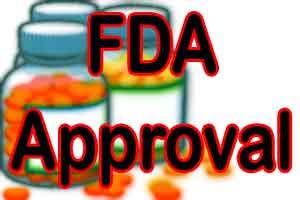- Home
- Editorial
- News
- Practice Guidelines
- Anesthesiology Guidelines
- Cancer Guidelines
- Cardiac Sciences Guidelines
- Critical Care Guidelines
- Dentistry Guidelines
- Dermatology Guidelines
- Diabetes and Endo Guidelines
- Diagnostics Guidelines
- ENT Guidelines
- Featured Practice Guidelines
- Gastroenterology Guidelines
- Geriatrics Guidelines
- Medicine Guidelines
- Nephrology Guidelines
- Neurosciences Guidelines
- Obs and Gynae Guidelines
- Ophthalmology Guidelines
- Orthopaedics Guidelines
- Paediatrics Guidelines
- Psychiatry Guidelines
- Pulmonology Guidelines
- Radiology Guidelines
- Surgery Guidelines
- Urology Guidelines
FDA approves new drug for Mycobacterium Avium

"As bacteria continue to grow impervious to currently available antibiotics, we need to encourage the development of drugs that can treat resistant infections. That means utilizing novel tools intended to streamline development and encourage investment into these important endeavors," said FDA Commissioner Scott Gottlieb, M.D. "This approval is the first time a drug is being approved under the Limited Population Pathway for Antibacterial and Antifungal Drugs, and it marks an important policy milestone. This pathway, advanced by Congress, aims to spur development of drugs targeting infections that lack effective therapies. We’re seeing a lot of early interest among sponsors in using this new pathway, and it’s our hope that it’ll spur more development and approval of antibacterial drugs for treating serious or life-threatening infections in limited populations of patients with unmet medical needs."
Arikayce also was approved under the Accelerated Approval pathway which was based on achieving three consecutive negative monthly sputum cultures by month six of treatment. The safety and efficacy of Arikayce, an inhaled treatment taken through a nebulizer, was demonstrated in a randomized, controlled clinical trial where patients were assigned to one of two treatment groups. One group of patients received Arikayce plus a background multi-drug antibacterial regimen, while the other treatment group received a background multi-drug antibacterial regimen alone.
After six month of treatment, total of 29 percent of patients treated with Arikayce had no growth of mycobacteria in their sputum cultures for three consecutive months compared to 9 percent of patients who were not treated with Arikayce.
The side effects of Arikayce include increased risk of respiratory conditions including hypersensitivity pneumonitis , bronchospasm , exacerbation of underlying lung disease and hemoptysis that have led to hospitalizations in some cases. Other usual side effects in patients taking Arikayce were dysphonia , cough, ototoxicity , upper airway irritation, musculoskeletal pain, fatigue, diarrhea and nausea.
The FDA granted approval of Arikayce to Insmed, Inc. of Bridgewater, NJ.

Disclaimer: This site is primarily intended for healthcare professionals. Any content/information on this website does not replace the advice of medical and/or health professionals and should not be construed as medical/diagnostic advice/endorsement or prescription. Use of this site is subject to our terms of use, privacy policy, advertisement policy. © 2020 Minerva Medical Treatment Pvt Ltd